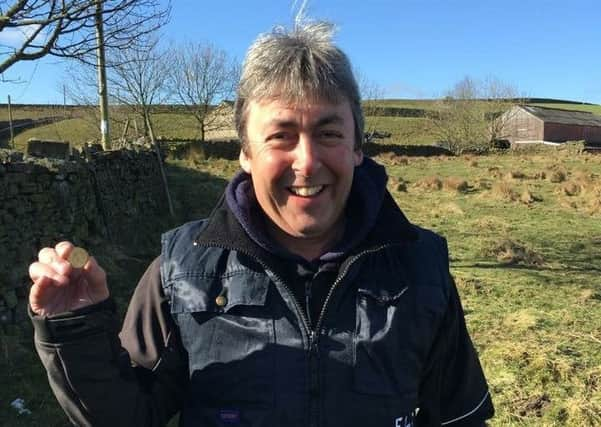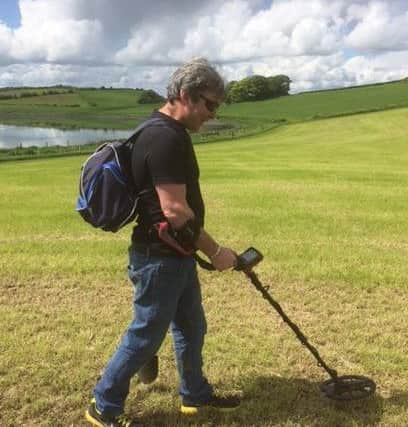'˜Every detectorist yearns for gold, I was lucky to find some'


Michael Gwynne, 55, said he started detecting in the eighties because of his love for history, however after failing to find anything of significance with his basic metal detector he “gave it up as a bad job”.
It was not until 2014 when the Kirkcubbin man met Paul Reynard through his work in the electrical industry, that his passion was rekindled.
Advertisement
Hide AdAdvertisement
Hide AdMichael said: “We got chatting and Paul mentioned metal detecting. I said I used to own one when I was younger. Next thing we’ve invested in a pair of Makro Racers (a type of metal detector). When you have a passion for something it never leaves you.”


A short time later a trip to England to visit Paul and do some detecting, resulted in Michael, quite literally, striking gold.
Michael said: “We went to an old Roman road leading into a place called Bainsbridge. It’s in the Yorkshire Dales. We walked into a field and Paul said, ‘take your pick, left or right’. I went right and five minutes later I found gold.
“It was a 1775 George Third Gold Guinea worth £1,000. If it had been 1774 it would have been £30,000. You want to hear the ring off it when you flick it into the air.”
Advertisement
Hide AdAdvertisement
Hide AdHe continued: “I found it beside a wall that would have dated back to Roman times. I think what happened was someone must have jumped over the wall in the 17th century and it fell out of their pocket, and sat there for nearly 300 years.”


Michael came to the News Letter’s attention last month after he appeared in the Coroner’s Court to declare another treasure find — a hoard of silver coins in Cloughy. He said the gold guinea and his latest find were his biggest discoveries, though he has also found some intact musket balls — an ancient type of ammunition.
Although he’s found enough treasure to more than repay the cost of the detector – £500, it’s not the money he does it for: “I love history, that’s why it do it.”
He added: “The hardest part is stopping. If you haven’t found anything you want to keep going until you do. If you have you keep going in case there’s more nearby.”
Advertisement
Hide AdAdvertisement
Hide AdHe said: “There are groups in Northern Ireland who arrange trips to specific sites, maybe somewhere a battle has gone on. There’s hundreds of people in a field and some of the detectors are setting off other detectors. I prefer to be on my own or in a very small group. I find it the most peaceful and relaxing pursuit.”
Michael said: “The one thing that a detectorist yearns for is gold. I was lucky enough to find some. I know some guys who have been detecting for more than 20 years and they’ve never found any.”
Michael was one of three detectorists responsible for uncovering a hoard of four silver coins at Cloughy.
Three of the coins are Elizabeth I sixpences issued between 1561-1602. The fourth coin is a Spanish ‘4 Reales’ probably minted during the first half of the seventeenth century.
Advertisement
Hide AdAdvertisement
Hide AdThe area in which the coins were found has a number of contemporary monuments in the vicinity including an unusual defended settlement known as the Whitehouse, as well as Castleboy tower-house and Kirkistown Castle. All three of these sites would have been occupied by comparatively wealthy and powerful landowners, either trading or controlling trade in this part of the Ards Peninsula.
While the coins may not have belonged to any of them, they do reflect the impact of commercial activity in the area they controlled. The Spanish reale in particular reflects a global trading system which eventually brought a coin minted in South America to a small field in rural Ireland.
The coin hoard was declared treasure at the Coroner’s Court as is required by law under the Treasure Act (1996).